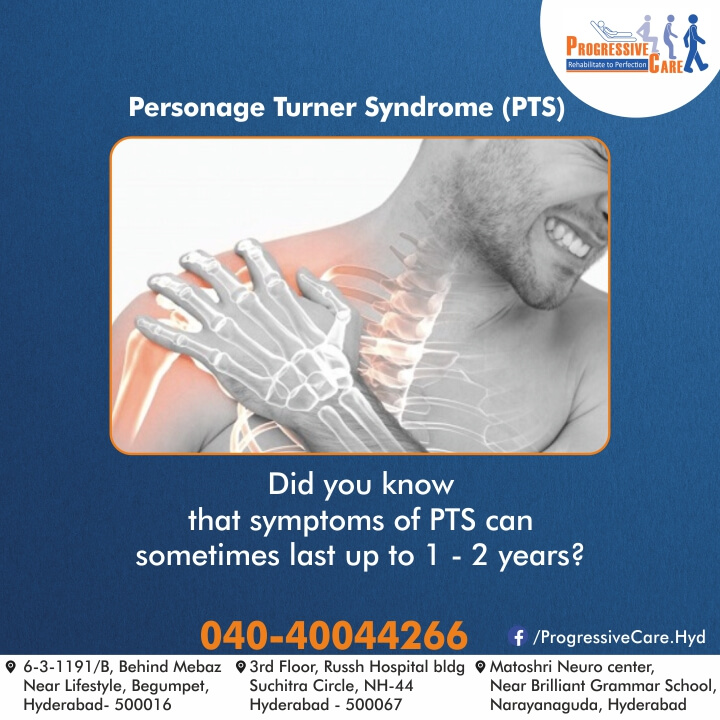Personage Turner Syndrome (Brachial Neuritis)

Personage turner syndrome is one of the neurological disorders in which sudden excruciating pain in the shoulder is followed by weakness in the muscles supplied by the nerve. Weakness may persist from days to few weeks. Brachial plexus is damaged in the personage turner syndrome
Clinical manifestations
The clinical manifestations differ depending upon the trunk or nerve roots of the brachial plexus involved
- Intense and sharp sudden pain probably mostly in the midnight. The pain may last for few hours to few weeks.
- Weakness or atrophy of the muscles usually starts after pain
- Pain followed by weakness is the classic sign for personage turner syndrome
- Muscular weakness is present mostly over the shoulder, upper arm muscles and sometimes causes weakness over the muscles supplying the chest wall, diaphragm, forearm, and hand
- Some may exhibit sensory disturbances
- Normally the patients report two phases i.e. acute and chronic phase. In the acute phase, pain is very severe and in the chronic phase the muscular atrophy is seen
AETIOLOGY
- The exact etiology is not known but mostly it is thought that it triggers after a viral infection. About 25% of the population are seemed to be affected.
- Trauma
- Growth of soft masses like cyst, neuroma or as of like in cancer may cause PTS
- Recent surgery or radiation treatment
- Autoimmune disorders may precipitate the condition
PHYSIOTHERAPY MANAGEMENT
In the first few weeks’ pain management with opiates, NSAIDS can be done to decrease viral infection. During physical therapy after a thorough physical assessment therapist focus on
- patient education,
- upper-extremity ROM exercises,
- strengthening exercises to prevent further muscular atrophy
- Modalities such as TENS can help in pain management.
- The use of electrical stimulations, facilitatory techniques will be useful in completely denervated muscles
- Resisted exercise with the help of therabands and dumbbells is suggested after increase of muscle power
Outcome Measures
- Manual muscle testing for assessing the muscle power
- Shoulder pain and disability index (SPADI)
- Shoulder rating questionnaire (SRQ)
- Disability of arm shoulder and hand(DASH)r
- Nine Hole Peg Test
Differential Diagnosis
- Rotator cuff tears
- Adhesive capsulitis
- Cervical radiculopathy
- entrapment syndromes around the shoulder
- Tumors of the spinal cord
- Thoracic outlet syndrome (TOS)
For more details contact us on 📞9618906780
